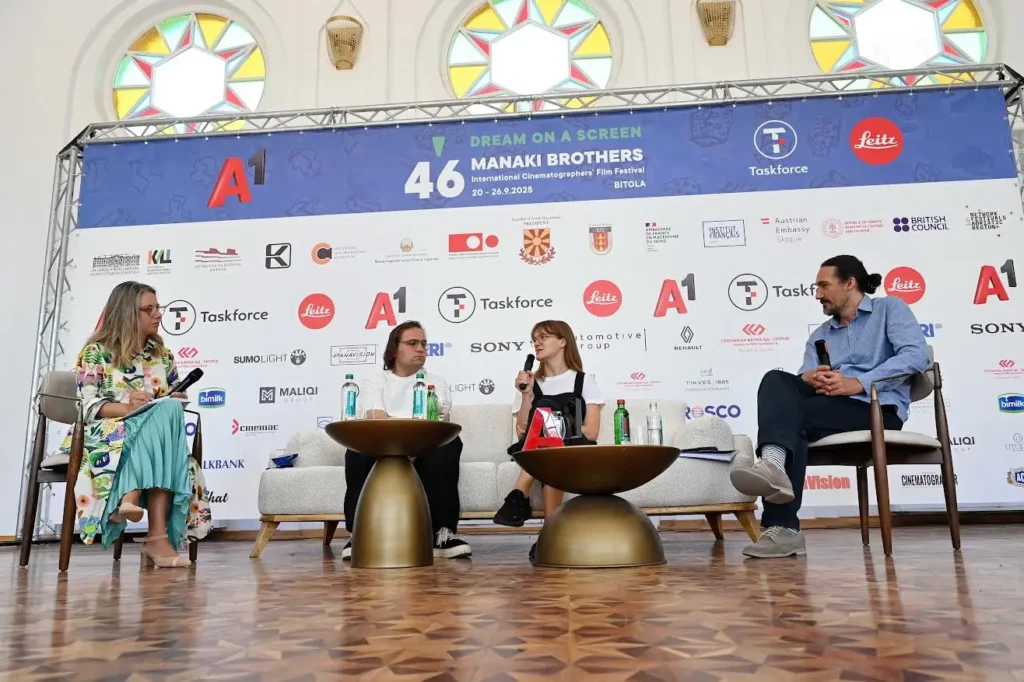Visitor by Vytautas Katkus from Lithuania was part of the official selection Camera 300 at the 46. edition of IFF Manaki Brothers and at today’s press conference Katkus spoke about the rise of Lithuanian cinema, his method of work and the cooperation with his colleagues.
-The rise of Lithuanian cinema is due to a set of circumstances. The majority of the films that we see at festivals and that achieve success are by the generation which graduated 10-15 years ago and what sets us apart is that we cooperate with each
other. There is no competitive spirit among us, but a spirit of cooperation and I think that is precisely why all of us managed to push our films to the end. Even while we were studying, we were aware that it would be difficult to make films and we decided to cooperate instead of compete, Katkus said.
He is the film’s director, cinematographer and screenwriter and said that even from the start he thought visually about the film.
-I knew from the start that I cannot shoot without a story that the camera would follow up on. That is why I cooperated with a co-screenwriter, who is my long-friend and we know and complement each other. She helped me with the script and when the shoot started, I already harmonized the roles of director and cinematographer. I managed in both roles, as director and as cinematographer, Katkus said.
J. Daniel Zuniga is the cinematographer of the Mexican documentary Say Goodbye. This is an intimate small movie, but very complex as well. It is a politically big film that links two countries and communities.
-We decided to intimately get in the film. Even though the topic is political, we decided not to give it such a label. I got in those families and showed their vulnerability. Everyday life is important and we wanted to show that. To show that they live in a context of invisible sorrow. I shot with a handheld camera, but later I found other methods of shooting. Maybe that led to a slower expression, but it captures the context, Zuniga said.
Renovation by Lithuanian director Gabriele Urbonate was screened last night as part of the Adriatic Network.
-Currently many buildings in Lithuania are having their façades replaced, but can the change of facades change the remains or the habits of the past? I wanted to present the reality of our generation. The interior of the flat is very modern, but it is located in a Soviet building. Architecture was very important for me, because monuments from the past are being removed currently in Lithuania. I believe that a country cannot move forward until it accepts that past such as it was, Urbonaite said.
She said she was happy to be in Bitola with her film and that she was surprised by the great reception at IFFC Manaki Brothers and the other festivals where it was screened.



